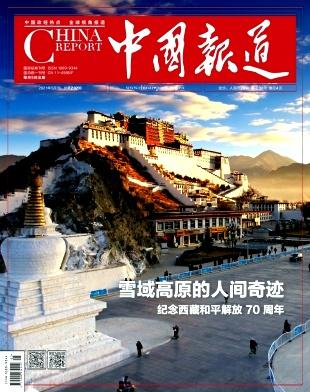‘Involution’ or Alienation?: Visiting the Issue through Jia Zhangke’s ‘Hometown Trilogy’
IF 0.7
Q3 AREA STUDIES
引用次数: 0
Abstract
‘Nei Juan (内卷)’, translated as ‘involution’, was the ‘buzzword’ in Chinese social media in the year 2020. With ‘involution’, two more phenomena widely known as the ‘Sang Wenhua (丧文化)’, loosely translated as the ‘culture of dispiritedness’ and ‘Tangping Zhuyi (躺平主义)’, loosely translated as ‘lying flat-ism’, gained currency. If ‘involution’ is the issue the urban youth of China is facing in a commercialised and competitive China of today, then ‘dispiritedness’ seems to be its symptom, and ‘lying flat-ism’ its cure being adopted by the ‘dispirited’ youth. As a result, a few questions naturally arise. Is ‘involution’ a new issue that the Chinese urban youth is encountering today? Or is ‘involution’ in itself yet another symptom of a larger issue, ‘alienation’? My inquiry into these questions makes me turn towards films. To find the answers, I take up the works of Jia Zhangke, the central theme of whose works I describe as ‘the desultory wanderings of the alienated souls’. I argue that a critical and close reading of his ‘Hometown Trilogy’, will present us with such youth, who in the face of the rapid changes brought by the post-1979 economic reforms, were filled with a sense of powerlessness, meaninglessness, normlessness, isolation and self-estrangement, all forms of alienation as proposed by Melvin Seeman. I also look into the genesis of ‘involution’ and its manifestation to argue that the Chinese urban youth experiencing ‘involution’ and thereby ‘dispiritedness’, are experiencing the same subjective feelings of alienation as experienced by the youth in the Jia’a ‘Hometown Trilogy’.“内卷”还是异化?:从贾樟柯的“故乡三部曲”看问题
“内敛”,翻译过来就是“内敛”,是2020年中国社交媒体的热词。随着“对合”一词的出现,另外两种被广泛称为“桑文华”(大致翻译为“颓废文化”)和“唐平住义”(大致翻译为“平躺主义”)的现象开始流行起来。如果说“堕落”是中国城市青年在当今商业化和竞争激烈的中国所面临的问题,那么“沮丧”似乎就是它的症状,而“沮丧”的年轻人则采用了“说谎扁平主义”作为治疗方法。因此,一些问题自然产生了。“内化”是当今中国城市青年面临的新问题吗?或者“内化”本身是一个更大问题“异化”的另一个症状?我对这些问题的探究使我转向了电影。为了找到答案,我选择了贾樟柯的作品,我把他作品的中心主题描述为“被异化的灵魂的散漫流浪”。我认为,通过对他的“故乡三部曲”的批判性和细读,我们可以看到这样的年轻人,面对1979年后经济改革带来的快速变化,他们充满了无力感、无意义感、无规范感、孤立感和自我疏离感,这些都是梅尔文·西曼所提出的异化形式。我还探讨了“对合”的起源及其表现,认为中国城市青年正在经历“对合”,从而“沮丧”,经历着与贾阿“家乡三部曲”中青年所经历的相同的主观异化感。
本文章由计算机程序翻译,如有差异,请以英文原文为准。
求助全文
约1分钟内获得全文
求助全文
来源期刊

中国报道
AREA STUDIES-
CiteScore
1.70
自引率
0.00%
发文量
9353
期刊介绍:
China Report promotes the free expression and discussion of different ideas, approaches and viewpoints which assist a better understanding of China and its East Asian neighbours. A quarterly journal of the Institute of Chinese Studies, it attempts to provide a fresh approach which goes beyond the strictly utilitarian area studies without becoming antiquarian. Launched in 1964, China Report has, over the years, widened its interests and aims and transformed itself into a scholarly journal that seeks a better understanding of China and its East Asian neighbours - particularly their cultures, their development and their relations with China. It is an indispensable source of information on China, its society and culture.
 求助内容:
求助内容: 应助结果提醒方式:
应助结果提醒方式:


